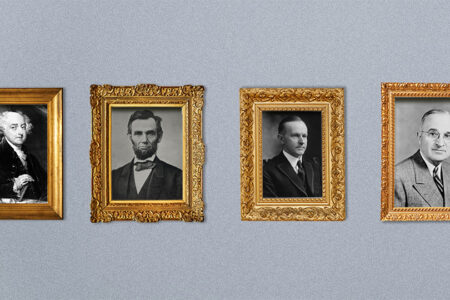God Doesn’t ‘Cancel’ Us
A missionary and church planter found himself in a difficult position when the members of the so-called cancel culture endeavored to silence him. His message was influencing the city, and hearts were turning to the Lord Jesus. But the locals were frustrated with the spiritual impact on their community. The new believers were living by biblical values, which contradicted the city’s culture and actually affected its economy.
Offended, the locals rioted. City officials tried to quell the crowd, but soon the whole place was in an uproar. The missionary wanted to speak to everyone, but even his friends advised him to be silent.
The city clerk stepped in, encouraging the mob to use the courts. They could press charges against the missionary instead of pursuing violence. In the end, the missionary left quietly.
The missionary was the apostle Paul, and the riot in Ephesus (Acts 19:23–41) gives us a peek into the biblical history of cancel culture.
Cancel culture isn’t a modern phenomenon. It’s an age-old method of ostracizing the opposition by marshaling power through public shaming. The angry crowd in Ephesus that tried to ostracize Paul is no different from college students who interrupt guest speakers they disagree with today. Or the self-righteous Twitter mob that boycotts everything it considers offensive and drags it into the public square of social-media shaming.
Unlike the past, however, modern cancel culture has become its own legalistic religion, with no expiation or forgiveness. And it employs public shaming for past, present, and potential “sins.”
To show you how foolish and extensive it has become, let’s consider the story of Winston Marshall. Earlier this year, Marshall, the banjo player for a popular British folk-rock band, publicly praised the book Unmasked by Andy Ngo. Ngo’s book criticized the Antifa movement for its anti-democratic ideals.
Marshall received so much backlash he deleted his post, apologized, and stepped away from the band. Cancel culture will go after anyone and anything. It silenced an insignificant banjo player for a book he enjoyed. Things don’t get more random than that.
Paul was “canceled” by both Jewish and Gentile crowds. He was physically forced out of Pisidian Antioch, Iconium, Lystra, and Thessalonica for what he preached. He was jailed in Philippi, Jerusalem, Caesarea, and Rome for what he believed about Messiah Jesus. He was persecuted, whipped, jailed, and stoned. But he never canceled anyone—a lesson for the church today.
In Athens, Paul was invited to share with a council what he was teaching about Christ. He could have used the opportunity to “cancel” all the pagan gods that encircled him as he spoke, saying, “You shall have no other gods before Me” (Ex. 20:3).
Instead, he opted to comprehend his surroundings, clarify the gospel message for his listeners, and challenge them. He wanted to build a bridge and create a conversation. So he found an altar with the inscription “TO THE UNKNOWN GOD” and used the altar to clarify the Lord’s plan of salvation through Christ Jesus for the Athenians, leaving them with a challenge to ponder the resurrected Christ (Acts 17:16–33). Some disagreed with Paul and ignored him, while others believed and became Christians.
The religious Jews of Paul’s day never would have stepped foot in the Areopagus. They would have canceled the Athenians through their absence. But Paul compassionately sought to comprehend, clarify, and challenge the Athenians to consider Christ.
Why? He told us in Romans 5:8: “God demonstrates His own love toward us, in that while we were still sinners, Christ died for us.” God never canceled us. Our loving Father never wrote us off, so we must not write off others.
The church should never be in the canceling business. The love of Christ doesn’t compel us to cancel but, rather, to use love and compassion to reach others with the truth of Christ.









1 thought on “God Doesn’t ‘Cancel’ Us”